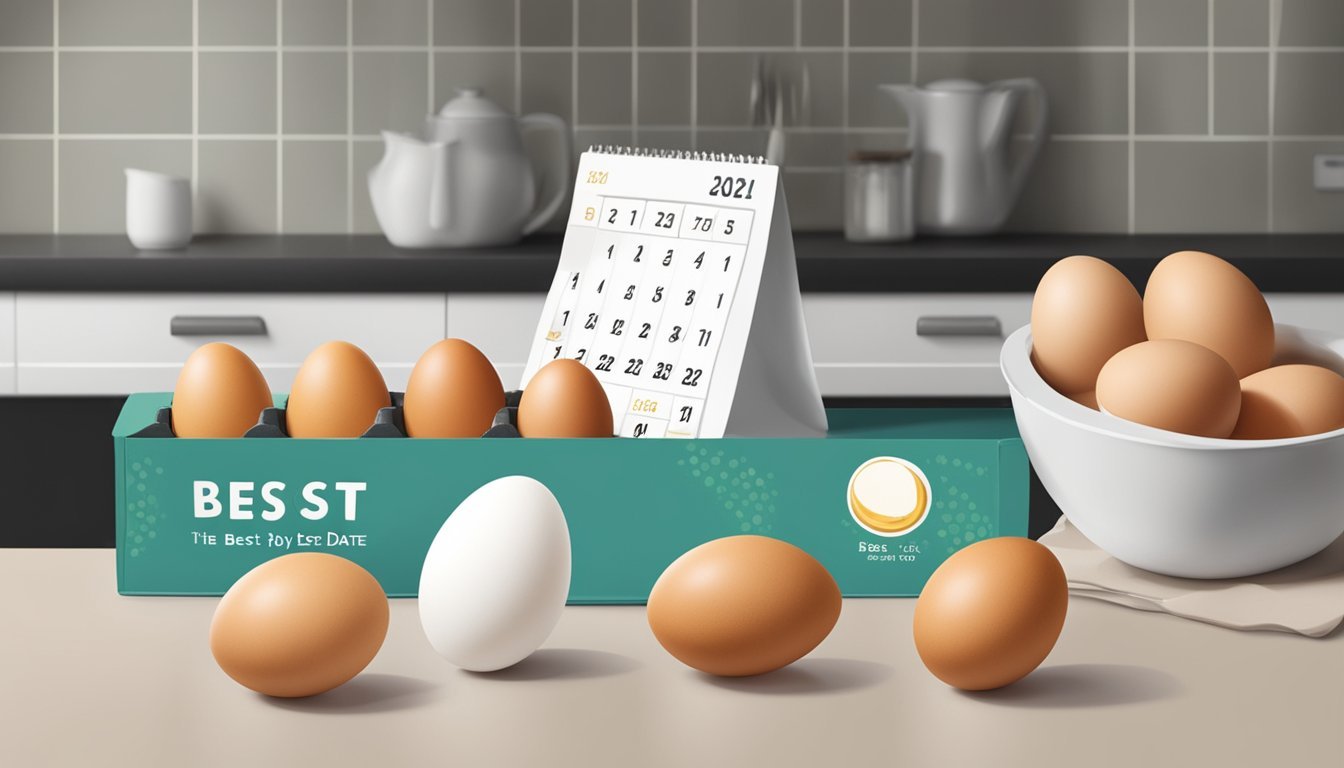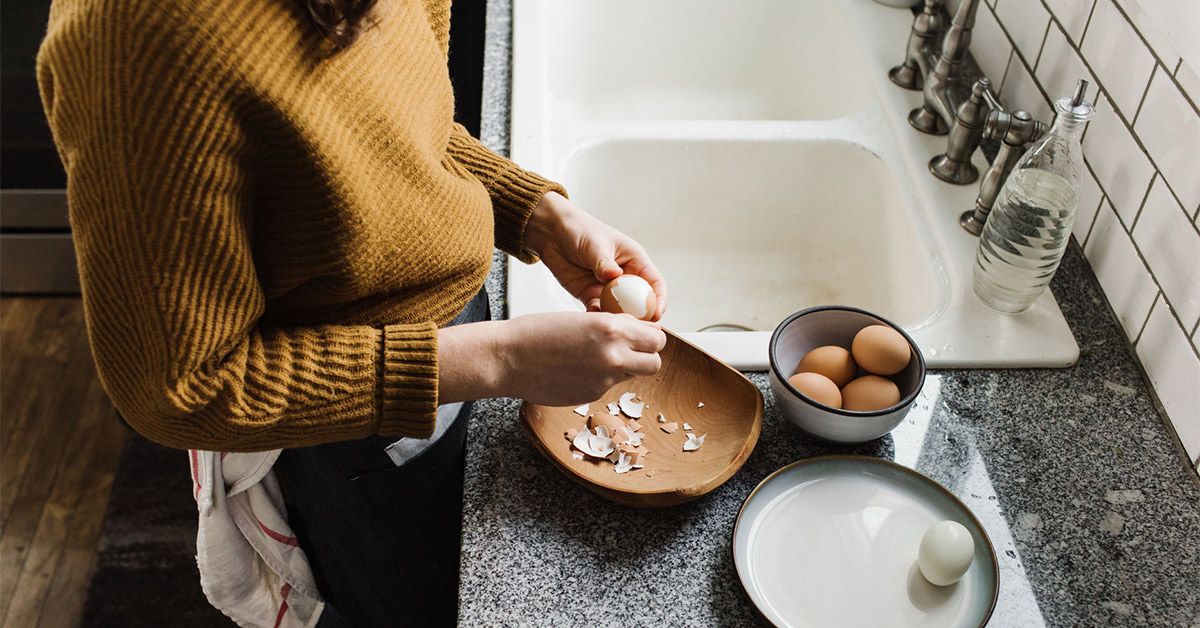Store boiled and hard-boiled eggs in the fridge unpeeled in an airtight container. Consume within one week for the best freshness.

Boiled and hard-boiled eggs are a nutritious, convenient snack. Proper storage ensures they stay fresh and safe to eat. Keeping them in the fridge helps maintain their quality and extends their shelf life. Use an airtight container to prevent them from absorbing fridge odors.
For optimal freshness, consume within one week. This practice not only preserves the eggs’ flavor but also ensures they remain safe to eat. Following these simple tips, you can enjoy your boiled eggs at their best. Proper storage makes a significant difference in maintaining the eggs’ quality.
Choosing The Right Eggs
Storing boiled and hard-boiled eggs properly starts with choosing the right eggs. The quality and freshness of the eggs you select are crucial in maintaining their longevity and taste. Here are some essential tips to pick the best eggs for boiling.
Freshness Indicators
Fresh eggs are key to delicious boiled eggs. To check an egg’s freshness, use these simple methods:
- Float Test: Place the egg in water. Fresh eggs sink; old eggs float.
- Shell Appearance: Fresh eggs have a rough shell. Older eggs have a smooth shell.
- Egg White: Crack an egg on a plate. Fresh eggs have firm, thick whites.
Size And Quality
The size and quality of the eggs also affect their storage and taste. Here’s what to consider:
- Size: Choose medium or large eggs. They are easier to handle and boil evenly.
- Grade: Opt for Grade A or AA eggs. These have the best quality and taste.
- Source: Buy eggs from reputable sources. Organic or farm-fresh eggs are often the best.
By selecting fresh, high-quality eggs, you ensure your boiled eggs remain tasty and fresh for longer.
Boiling Techniques
Boiling eggs might seem simple, but it needs precision. Proper boiling ensures eggs stay fresh and tasty. Let’s explore the best techniques to achieve perfect boiled and hard-boiled eggs.
Perfect Boil Time
The time you boil eggs affects their texture and taste. Here’s a handy table for reference:
| Boil Time (minutes) | Result |
|---|---|
| 4-5 | Soft-boiled with runny yolk |
| 6-7 | Medium-boiled with slightly soft yolk |
| 8-9 | Hard-boiled with firm yolk |
Follow these steps for a perfect boil:
- Place eggs in a single layer in a pot.
- Cover with cold water about an inch above the eggs.
- Bring water to a rolling boil over medium-high heat.
- Once boiling, set a timer based on your desired yolk firmness.
Cooling Methods
Cooling boiled eggs is vital to stop further cooking. Here are some effective methods:
- Ice Bath: Transfer eggs to a bowl of ice water immediately.
- Cold Water: Run cold water over the eggs in the pot.
- Refrigeration: Place eggs directly in the fridge if in a hurry.
Use an ice bath for the best results. This method cools eggs quickly and prevents overcooking.
Ensure eggs are completely cool before storing them in the fridge. This keeps them fresh and tasty for more extended periods.
Peeling Tips
Peeling boiled or hard-boiled eggs can be tricky. These tips ensure your eggs stay fresh longer. Follow these steps for easy peeling and fewer cracks.
Easy Peeling Methods
Here are some simple methods for easy peeling:
- Cool the eggs immediately in ice water after boiling.
- Roll the egg gently on a flat surface to crack the shell.
- Start peeling from the wider end where the air pocket is.
- Peel under running water to help remove the shell easily.
Avoiding Cracks
Follow these tips to avoid cracks:
- Boil the eggs in a single layer to avoid bumping.
- Use room temperature eggs before boiling to reduce shock.
- Add a pinch of salt to the water to strengthen the shell.
- Use older eggs as they peel easier and crack less.

Credit: discover.texasrealfood.com
Storage Containers
Storing boiled and hard-boiled eggs properly ensures their freshness. The right containers play a crucial role in this process. Here’s a guide to the best storage containers and sealing techniques.
Best Types Of Containers
Using the right container can make a big difference. Here are some options you can consider:
- Plastic Containers: Lightweight and easy to handle.
- Glass Containers: Durable and does not retain odors.
- Egg Trays: Specifically designed for eggs, providing stability.
Avoid containers that do not seal well. It helps maintain the freshness of your eggs.
Sealing Techniques
Proper sealing is essential to keep your eggs fresh. Here are some effective methods:
- Use Plastic Wrap: Cover the container with plastic wrap.
- Airtight Lids: Ensure the lid fits snugly on the container.
- Zip-lock Bags: Place eggs in a zip-lock bag and remove excess air.
These techniques prevent air exposure and moisture loss, keeping your eggs fresh longer.
| Container Type | Benefits | Drawbacks |
|---|---|---|
| Plastic Containers | Lightweight, Easy to Handle | Can Retain Odors |
| Glass Containers | Durable, Odor-Free | Heavier, Fragile |
| Egg Trays | Stable, Egg-Specific Design | Limited Use Beyond Eggs |
Fridge Placement
Proper fridge placement can keep your boiled and hard-boiled eggs fresh. Storing them in the right spot ensures they stay tasty and safe to eat. Here are some tips to maximize their longevity and freshness.
Optimal Temperature
Keep your fridge at an optimal temperature of 34-40°F (1-4°C). This range helps to prevent the growth of bacteria. Make sure your eggs are stored in the coldest part of the fridge. Avoid placing them in the door, as it experiences frequent temperature changes.
| Location | Temperature Stability |
|---|---|
| Main Compartment | High |
| Fridge Door | Low |
Avoiding Contamination
Always keep your eggs in a clean, sealed container. This helps to prevent contamination from other foods. Use separate containers for different types of eggs to avoid cross-contamination.
- Store eggs in their original carton or a sealed container.
- Place them away from strong-smelling foods like onions.
- Ensure the container is dry to prevent mold growth.
By following these fridge placement tips, your boiled and hard-boiled eggs will stay fresh and tasty longer.

Credit: www.healthline.com
Labeling And Dating
Properly storing boiled and hard-boiled eggs is crucial for maintaining their freshness and longevity. One key aspect is labeling and dating the eggs. This ensures that you know exactly when they were cooked, which helps prevent spoilage. Below, we delve into the importance of labeling and best practices for dating your eggs.
Importance Of Labels
Labels are essential for keeping track of your boiled eggs. They help you identify which eggs are fresh and which are older. This is especially helpful if you boil eggs in bulk. Proper labeling can prevent food waste and ensure you consume the eggs before they spoil.
Here are some benefits of using labels:
- Organization: Keeps your fridge organized.
- Freshness: Ensures you eat the freshest eggs first.
- Safety: Reduces the risk of eating spoiled eggs.
Best Practices For Dating
Dating your eggs is equally important. It allows you to know exactly how long the eggs have been stored. This practice helps maintain their freshness and flavor.
Follow these best practices for dating your eggs:
- Use a permanent marker to write the date.
- Write the date on the egg shell or on the container.
- Store the eggs in the main body of the fridge, not the door.
To make things easier, you can use the following table for reference:
| Type of Egg | Storage Time |
|---|---|
| Boiled Eggs (in shell) | Up to 1 week |
| Boiled Eggs (peeled) | Up to 5 days |
By following these guidelines, you can ensure your boiled eggs remain fresh and safe to eat. Proper labeling and dating are simple steps that make a big difference.
Signs Of Spoilage
Knowing the signs of spoilage is crucial for keeping your boiled and hard-boiled eggs fresh. Spoiled eggs can pose health risks. It’s important to spot spoilage early. Here are some key indicators.
Visual Indicators
Check for any discoloration on the eggshell. Brown or black spots are bad signs. Cracks on the shell can also mean spoilage. Look at the egg whites and yolks. They should be clear or bright yellow. Cloudy or grayish whites signal spoilage. If the yolk has a green ring, it might be spoiled.
Smell And Texture
The smell test is very reliable. Fresh eggs have no strong odor. Spoiled eggs smell sulfuric or rotten. If you notice an off smell, discard the egg. Texture also helps to identify spoilage. Fresh egg whites are firm and springy. Spoiled eggs have runny whites and crumbly yolks.

Credit: discover.texasrealfood.com
Maximizing Shelf Life
To keep your boiled and hard-boiled eggs fresh in the fridge, follow these tips. Proper storage extends their shelf life and ensures they remain safe to eat. Let’s explore ways to maximize the longevity and freshness of your eggs.
Tips For Longevity
- Store in the original carton: Keep eggs in their original carton. This protects them from absorbing fridge odors.
- Maintain a consistent temperature: Store eggs in the main fridge compartment. Avoid keeping them in the door where temperature fluctuates.
- Label the eggs: Write the boiling date on the eggs. This helps track their freshness.
Maintaining Freshness
- Cool eggs quickly: After boiling, place eggs in ice water. This stops the cooking process and keeps them fresh.
- Peel only before eating: Keep the shell on until you are ready to eat. This preserves their freshness.
- Use airtight containers: Store peeled eggs in an airtight container. This prevents them from drying out and absorbing fridge smells.
| Storage Method | Shelf Life |
|---|---|
| Unpeeled in original carton | Up to 1 week |
| Peeled in airtight container | Up to 5 days |
Frequently Asked Questions
Is It Better to Store Hard-boiled Eggs Peeled or Unpeeled in the Refrigerator?
Store hard-boiled eggs unpeeled in the refrigerator. They stay fresh longer and retain moisture better.
How Do You Keep Hard-boiled Eggs Good in the Fridge?
Store hard-boiled eggs in the fridge within two hours. Keep them in a covered container. Eat within a week.
Is It Better to Store Hard-boiled Eggs in the Shell or Not?
Store hard-boiled eggs in the shell to keep them fresh longer. The shell protects against moisture loss and odors.
Can You Eat 2 Week Old Hard-boiled Eggs?
No, eating 2-week-old hard-boiled eggs is not safe. Consume hard-boiled eggs within one week for best quality and safety.
Conclusion
Storing boiled and hard-boiled eggs properly ensures they stay fresh and tasty. Always keep them in the fridge. Use airtight containers to prevent odor absorption. Label them with dates for easy tracking. Enjoy your eggs at their best by following these simple tips.
Freshness and longevity are just a few steps away!


GIPHY App Key not set. Please check settings